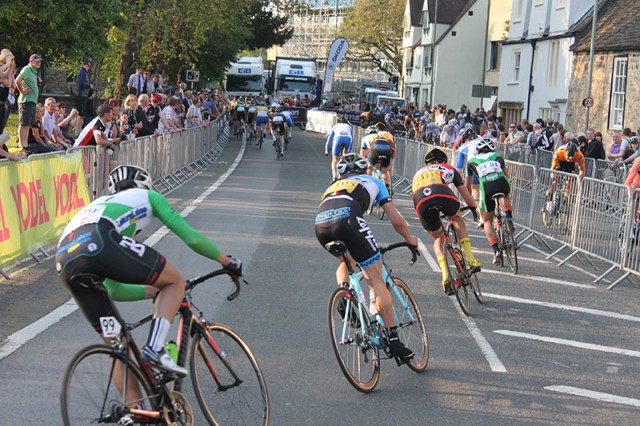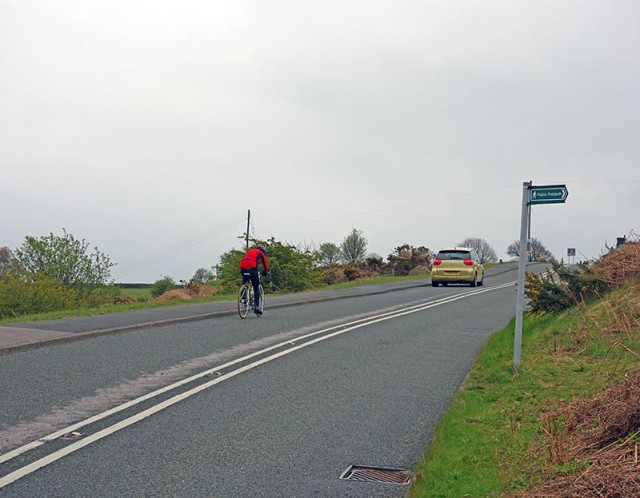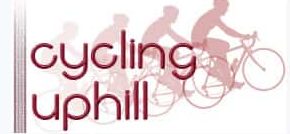A good question is whether racing makes good training or whether to be in the best form for races, you should do less racing and more training. And the other thing is what to do when you haven’t got any races.
Often when watching Eurosport you will hear people talk about riders lacking race fitness. For example, you can spend four weeks on a training camp, but it is only doing actual races that really brings about top form. For example, Chris Froome came to the Tour of Catalunya after a big training block in South Africa, but compared to his usual form, looked a little off the pace. However, at other times, riders like Quintana have come out of training in Columbia and gone straight into good racing form in races.

The other school of thought is that too much racing can interfere with gaining peak performance. For example, in Graeme Obree’s training book – he talks about the need to cut back on racing so that it doesn’t interfere with his training schedule. But, Obree had a really unique approach to training – go all out for an hour then spend 2-4 days recovering.
I’m thinking about this issue because my next race won’t be for a month, which is quite a long time at this stage in the season.
Advantages of racing as training
- You can guarantee in a race, you will have the best motivation to go as hard as you can for the race duration. I sometimes do private time trials where I ride around roads and measure my time. But, I never seem to go as hard as in a race. Often in these private time trials, I even give up after 75% of the imagined course. There’s no one there to make you get to the finish.
- A key element of getting to peak performance is stretching yourself and making more effort than previously. To get this new peak, a race can be an excellent way of getting more out of yourself.
- Technical aspects of racing. Whether time trials or road racing, a big component is the technical aspect – tactics and pacing. If you rely on training, these other aspects can become rusty. Racing a course like Buxton yesterday, forces you to think about pacing (wrong again), and technical aspects of cornering. It is also a test for things like equipment, clothes and pre-race strategy. These things can take more practise than you might imagine. As an amateur with no one to hand clothes, I’m often fumbling around in the back of the car with 20 minutes to go looking for some item of clothing e.t.c.
- Replication of race effort. One issue with training is that we often end up doing intervals or power levels which are different to a race scenario. When I’m training I often tend to do hard 5 minute hill intervals or level 3 threshold training. It is good training, but different to a time trial, where you are holding maximum effort for an hour. Racing gives the training to the specificities of future races. This is perhaps more important in road racing, where you are having to deal with the surges in efforts – around corners, to the top of hills and for the final sprint after a long five hours in the saddle. In theory, you could replicate these efforts in training. But, this kind of sprint training when already tired is perhaps easier when you have wheels to follow and the need to hold on to the right wheels. I think this is why pros talk about the need to be race fit, to get into the groove of racing at the high intensity and speed.
- Racing gives motivation. Hopefully, entering a race gives motivation to train harder. If you enjoy the race, you gain confidence to keep pushing on. If you’re disappointed with result, you can use that as a motivation to do better for the next race. When you are training, you are in your own comfort zone and you might lose focus / motivation if it is a solitary effort.
Problems of racing all the time
- Frequent peaks. One problem with racing every week or 2-3 times a week, is that you can end up trying to peak several times a year. Even if you tell yourself you only need to peak twice in a year – everybody likes to do well in a race, even if it is low key. By mid-way through the week, you can start to think (even unconsciously) about the upcoming race and modify your training throughout the last part of the week. It takes a lot of discipline to train through races. Without entering the race, you can feel more freedom to train hard, knowing you don’t have to have a mini-peak for the weekend.
- Racing can become a routine. If you’re racing all the time. It becomes another race, and you may lose that edge – going through the motions, rather than intense aspiration to go deeper than before. Sometimes, it is helpful to take a break from racing, giving you time to look forward to the next race.
- No time for base training and sweat spot training. Sometimes, when I’m racing it feels like it is all or nothing. If you race mid week and at the weekend. You may find all you do is race, recover, race, recover and you miss out on the blocks of training where you build up endurance. For example, this February, I managed to do quite a bit of sweet spot training at a relatively high power for a couple of hours. This felt quite a good base of training, and I need to do more of this throughout the year for some of the longer distance races. Racing frequently means this kind of training can get missed out, if you’re not careful.
Training without racing

If you are training without any racing, you can still get to near maximum fitness. This is probably easier with a discipline like time trials than road racing. In theory, it is easier to replicate time trials in training than road racing.
With four weeks without any races, I will probably try to do at least one ‘self-timed’ time trial. Where, I choose a course and treat it like a time trial. This is just to keep working on the aspect of racing a time trial and not losing the knack of racing at race pace. To some extent I agree with the philosophy that training needs to be specific. If you want to improve your time trials, do more time trials. But, also, at the same time it’s not the end of the world, there are no races. I may go somewhere different like the North York Moors to find some silly steep hills. It’s a form of training, even if not specific to flat time trials.
It also depends on the time of the season. There are periods where it’s good to take a break from racing – even mid season is a good idea. I tend to take a break in August to mark the gap between the time trial season and hill climb season. I enjoy doing some unstructured hill climb training, before the more serious specific stuff in September and October.
Related
https://cyclinguphill.com/interval-training-tips/
https://cyclinguphill.com/training-on-tt-bike/


Hi Tejvan,
Iv really enjoy reading your blog and seeing your rides on Strava, they are both useful and inspiring. I’m planning on riding in Devil Dragon sportive in June, but at the moment feel unprepared for such a huge effort. Do you have any advice for training for really long rides?
Any advice would be greatly appreciated.
Regards
Alex